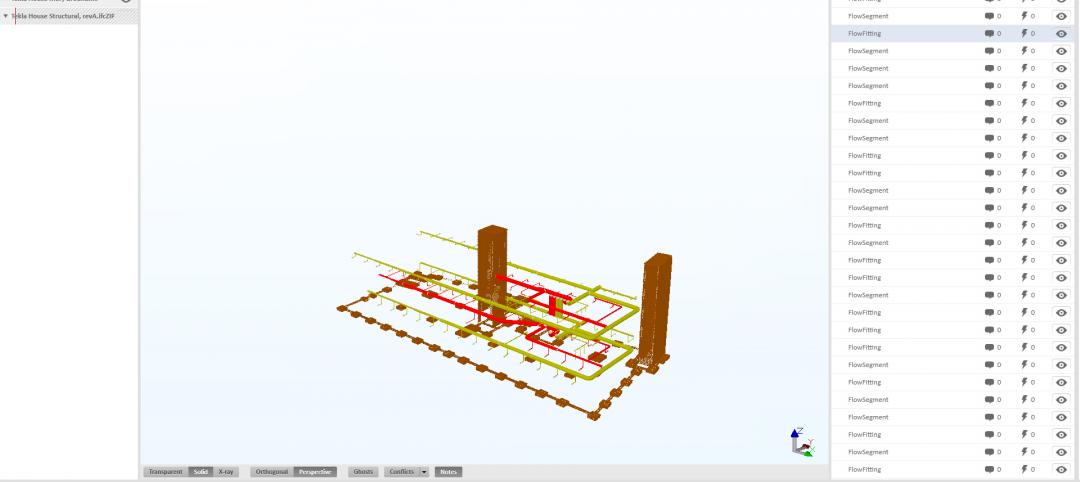INDIANAPOLIS — March 2011 — RATIO Architects, Inc. with studios in Indianapolis and Champaign, Ill., recently announced it has merged with prominent Raleigh, N.C., firm Cherry Huffman Architects. Principals of both firms are calling the business transaction a merger of equals given the firms’ expertise and their similar design philosophies. Louis Cherry, FAIA, LEED AP, principal of Cherry Huffman, has been named the sixth RATIO principal.
“We know the time is right for this merger and our continued national expansion,” says RATIO’s Founding
Principal and President Bill Browne, FAIA, LEED AP. “As the economy shows signs of rebounding, we are anticipating increased client needs at the national level. Providing geographic reach and breadth of talented work teams is a win for our clients as we eye larger and more complex projects.”
RATIO principals became aware of Cherry Huffman about two years ago. “We’ve worked in the North Carolina market and completed various projects for Duke University, observing many of the architectural teams in the area along the way. Simply stated, we are impressed with Louis Cherry’s leadership and his creative and innovative team. Our design philosophies, work cultures and styles are very similar,” says Browne.
RATIO and Cherry Huffman are privately held firms, and terms of the transaction will not be publicly disclosed.
About RATIO’s Growth Strategy
The merger with Cherry Huffman is the next step in RATIO’s strategy to grow to national design firm status. In 2004, RATIO completed a merger with a Champaign, IL-based architecture firm, bolstering the firm’s life sciences and higher education work. The expansion to the southeast with a fully functional studio allows RATIO’s leadership to offer regional businesses its strong experience and expertise in the landscape architecture, urban design and planning disciplines. RATIO will integrate work teams regardless of geographic and studio boundaries, a model that provides complementary skill sets that benefit the client and project.
Similar Firm Cultures and Design Approach
RATIO and Cherry Huffman have similar contextual design philosophies, which means team members bring their collective intellect together to design projects that reflect their environment and blend into the existing fabric of the community. Employees at both firms embrace the concept of sustainability.
RATIO and Cherry Huffman also are committed to the communities where they work and live, giving time, treasure and talent to various community projects. The Cherry Huffman team will continue to support various nonprofit organizations and needs in the Raleigh community.
About RATIO Architects, Inc.
RATIO is an award-winning design and planning firm currently with studios in Indianapolis, Ind., and Champaign, Ill., offering services in architecture, preservation, interior design, landscape architecture, urban design and planning, and graphic design. Founded in 1982, its collaborative studios combine professionals from all architectural disciplines to work on higher education, community, life science, workplace, lifestyle and cultural projects.
To date RATIO has completed work in more than 20 U.S. states. The design firm has managed and completed a variety of projects with Duke University as well as several high-profile projects: Engineering II Building, Colorado State University / Fort Collins, CO; The Children’s Museum of Indianapolis Welcome Center, Dinosphere, Dale Chihuly Fireworks of GlassExhibit and Parking Garage / Indianapolis, IN; NCAA Hall of Champions and Headquarters Expansion / Indianapolis, IN; Simon Property Group Corporate Headquarters / Indianapolis, IN.
About Cherry Huffman Architects
Cherry Huffman Architects is one of the most respected firms in North Carolina. In 2009 the firm received the American Institute of Architects North Carolina Chapter Firm of the Year Award, presented to a team that has established presence in the state and consistently produced quality architecture with a verifiable level of client satisfaction for a period of 10 years.
The firm has completed architectural and interior design projects for various municipal clients at city, county and state levels; public and private K-12 schools; university; public libraries; select residential projects; and various private sector projects that build long-term relationships and improve the community. Cherry Huffman’s leadership has helped shape a more sustainable region in North Carolina. Key projects completed include: Broughton High School / Raleigh; Burning Coal Theatre Company / Raleigh; Cameron Village Library / Raleigh; Kraft Family YMCA / Apex; McSwain Education Center at the Raulston Arboretum at North Carolina State University / Raleigh; Unitarian Universalist Fellowship / Raleigh; and Wake County Human Services Center / Raleigh.
Related Stories
| Feb 15, 2011
Iconic TWA terminal may reopen as a boutique hotel
The Port Authority of New York and New Jersey hopes to squeeze a hotel with about 150 rooms in the space between the old TWA terminal and the new JetBlue building. The old TWA terminal would serve as an entry to the hotel and hotel lobby, which would also contain restaurants and shops.
| Feb 15, 2011
New Orleans' rebuilt public housing architecture gets mixed reviews
The architecture of New Orleans’ new public housing is awash with optimism about how urban-design will improve residents' lives—but the changes are based on the idealism of an earlier era that’s being erased and revised.
| Feb 15, 2011
LAUSD commissions innovative prefab prototypes for future building
The LA Unified School District, under the leadership of a new facilities director, reversed course regarding prototypes for its new schools and engaged architects to create compelling kit-of-parts schemes that are largely prefabricated.
| Feb 15, 2011
New 2030 Challenge to include carbon footprint of building materials and products
Architecture 2030 has just broadened the scope of its 2030 Challenge, issuing an additional challenge regarding the climate impact of building products. The 2030 Challenge for Products aims to reduce the embodied carbon (meaning the carbon emissions equivalent) of building products 50% by 2030.
| Feb 15, 2011
New Urbanist Andrés Duany: We need a LEED Brown rating
Andrés Duany advocates a "LEED Brown" rating that would give contractors credit for using traditional but low cost measures that are not easy to quantify or certify. He described these steps as "the original green," and "what we did when we didn't have money." Ostensibly, LEED Brown would be in addition to the current Silver, Gold and Platinum ratings.
| Feb 15, 2011
AIA on President Obama's proposed $1 billion investment in energy conservation
The President’s budget increases the value of investment in energy conservation in commercial buildings by roughly $1 billion, reports AIA 2011 President Clark Manus, FAIA. The significant increase from the current tax deduction of $1.80 per sq. ft. now on the books is an increase for which the AIA has been advocating in order to encourage energy conservation.
| Feb 14, 2011
Sustainable Roofing: A Whole-Building Approach
According to sustainability experts, the first step toward designing an energy-efficient roofing system is to see roof materials and systems as an integral component of the enclosure and the building as a whole. Earn 1.0 AIA/CES learning units by studying this article and successfully completing the online exam.
| Feb 11, 2011
Four Products That Stand Up to Hurricanes
What do a panelized wall system, a newly developed roof hatch, spray polyurethane foam, and a custom-made curtain wall have in common? They’ve been extensively researched and tested for their ability to take abuse from the likes of Hurricane Katrina.












